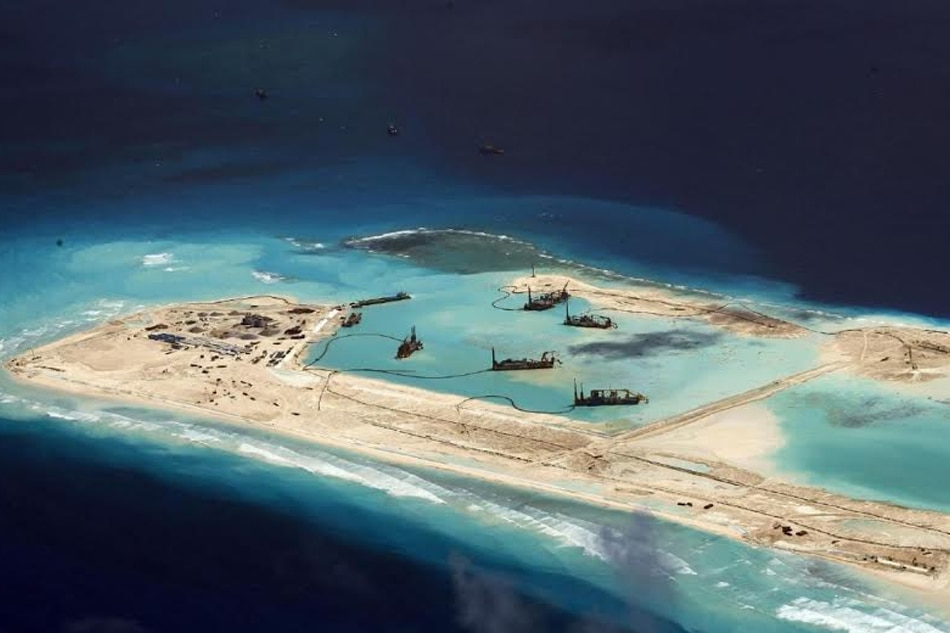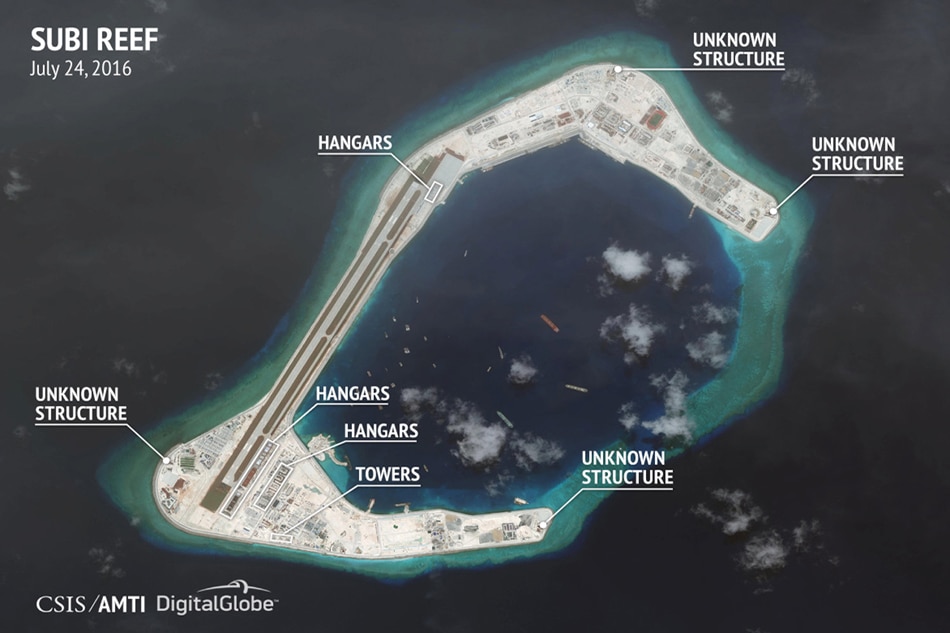Golez bucks EDCA halt, says threat from China still there
Why end an enhanced defense deal that allows American soldiers in the Philippines when the threat of China taking over Philippine territorial waters is still there?
This was the question posed by former National Security Adviser Roilo Golez following President Rodrigo Duterte's hinting of the possible abrogation of the Enhanced Defense Cooperation Agreement (EDCA) with the United States before his term ends.
Golez said the Mutual Defense Treaty between the Philippines and United States was signed in 1951 due to the rise of communism. Decades later, he said the threat is no longer internal but external, particularly from China.
"They (the Chinese) occupy Mischief Reef, they patrol Reed Bank or Recto Bank, they blockade Scarborough Shoal. Has that changed? It’s still there—the threat is still there," he said in an interview with ANC's Headstart with Karen Davila.
"So if the threat is still there, why are we talking of even abrogating, even suggesting the abrogation of the MDT? Or even suggesting the termination of EDCA, that actually has not been operationalized?"
Responding to queries as to why the Philippines does not receive as much military aid as Israel, Egypt, or Pakistan does from the US, Golez underscored that these countries are in a war zone.
"We should be happy we are not in a war zone. If we are in a war zone, I’m very sure the US will give us a lot of assistance, but we should not pray for that," he added.
Golez nevertheless agreed that it is time to review the MDT.
"Definitely, we have to review it. We have to look at the threats, and we also have to consider the network of security alliances," he said.
Golez said the network of security alliances will be affected if the Philippines formally terminates its MDT with the US.
"Other countries have a stake here. As I said, parang puzzle yan eh (it's like a puzzle)—you remove one and you alter the interconnection of the puzzle. It will affect China, it will affect Japan particular, Australia, New Zealand."
"These are interconnected alliances and the mother alliance would be with the United States, but the other countries, like Great Britain, is the strongest ally of the United States. They are also present in the Pacific," he added, noting the the European superpower also has informal military pacts with Australia, Singapore, Malaysia, and New Zealand.
Golez said, Vietnam also would stand to lose if the Philippines "all of a sudden swings away," because they would be left alone to resist China's territorial claim via the nine-dash-line.
'THE ART OF MOVING ON'
Golez also advised Duterte to move on from the historical issues with the United States, as Vietnam and Japan had done.
He noted that Vietnam had a "bloody war" with the American forces years ago, which led to the death of almost a million Vietnamese. Japan too had attacked Pearl Harbor, a US base in Hawaii, and were bombed twice in retaliation.
But the two countries have moved on from the past, he said.
"They’re nationalistic, but to them national security threat is more important. Forget the past and concentrate on the present. Past is past; present security threat is more important," he said.
The Philippines, he said, also seemed to "have moved on" from the atrocities brought about by the Japanese when they colonized the country for years.
"I think the President has also moved on as far as Japan is concerned. He’s not mentioning the Japanese occupation, the atrocities; so why can’t he apply the same principles of moving on with other things that are not serious as the Japanese occupation?" said Golez.
Before leaving for Japan for an official visit, Duterte on Tuesday recounted how thousands of Filipinos were supposedly killed when the United States took back Manila from the Japanese in 1945.
"200,000 died here. Ang Manila talaga (Manila really) flattened in just two days of bombing. These are historical [facts] that will never go away," he said.
Last September, Duterte also raised the 1901 Balangiga, Samar massacre, where residents over 10 were ordered killed by a US general, and the 1906 Bud Dajo massacre, where hundreds of Moros were killed by US forces in Sulu.


No comments:
Post a Comment